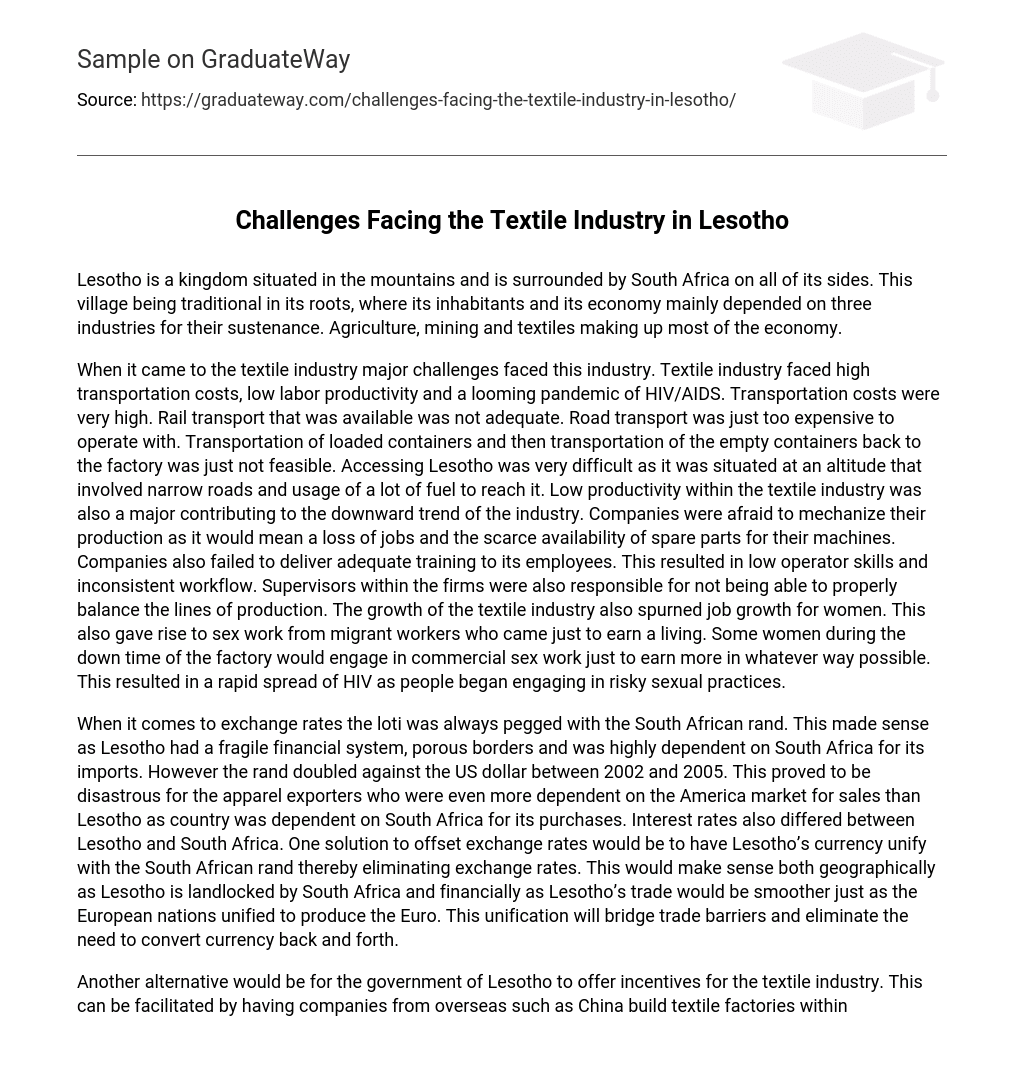Lesotho is a kingdom situated in the mountains and is surrounded by South Africa on all of its sides. This village being traditional in its roots, where its inhabitants and its economy mainly depended on three industries for their sustenance. Agriculture, mining and textiles making up most of the economy.
When it came to the textile industry major challenges faced this industry. Textile industry faced high transportation costs, low labor productivity and a looming pandemic of HIV/AIDS. Transportation costs were very high. Rail transport that was available was not adequate. Road transport was just too expensive to operate with. Transportation of loaded containers and then transportation of the empty containers back to the factory was just not feasible. Accessing Lesotho was very difficult as it was situated at an altitude that involved narrow roads and usage of a lot of fuel to reach it. Low productivity within the textile industry was also a major contributing to the downward trend of the industry. Companies were afraid to mechanize their production as it would mean a loss of jobs and the scarce availability of spare parts for their machines. Companies also failed to deliver adequate training to its employees. This resulted in low operator skills and inconsistent workflow. Supervisors within the firms were also responsible for not being able to properly balance the lines of production. The growth of the textile industry also spurned job growth for women. This also gave rise to sex work from migrant workers who came just to earn a living. Some women during the down time of the factory would engage in commercial sex work just to earn more in whatever way possible. This resulted in a rapid spread of HIV as people began engaging in risky sexual practices.
When it comes to exchange rates the loti was always pegged with the South African rand. This made sense as Lesotho had a fragile financial system, porous borders and was highly dependent on South Africa for its imports. However the rand doubled against the US dollar between 2002 and 2005. This proved to be disastrous for the apparel exporters who were even more dependent on the America market for sales than Lesotho as country was dependent on South Africa for its purchases. Interest rates also differed between Lesotho and South Africa. One solution to offset exchange rates would be to have Lesotho’s currency unify with the South African rand thereby eliminating exchange rates. This would make sense both geographically as Lesotho is landlocked by South Africa and financially as Lesotho’s trade would be smoother just as the European nations unified to produce the Euro. This unification will bridge trade barriers and eliminate the need to convert currency back and forth.
Another alternative would be for the government of Lesotho to offer incentives for the textile industry. This can be facilitated by having companies from overseas such as China build textile factories within Lesotho. The government of Lesotho can give such companies tax holidays for a number of years, possibly five. This will generate jobs within Lesotho and stimulate growth of the textile industry. Firms seeing this as an incentive will move within the country and take advantage of this opportunity. The government of Lesotho can also work with organizations from the United States and also the United Nations to apply this in the global marketplace.





